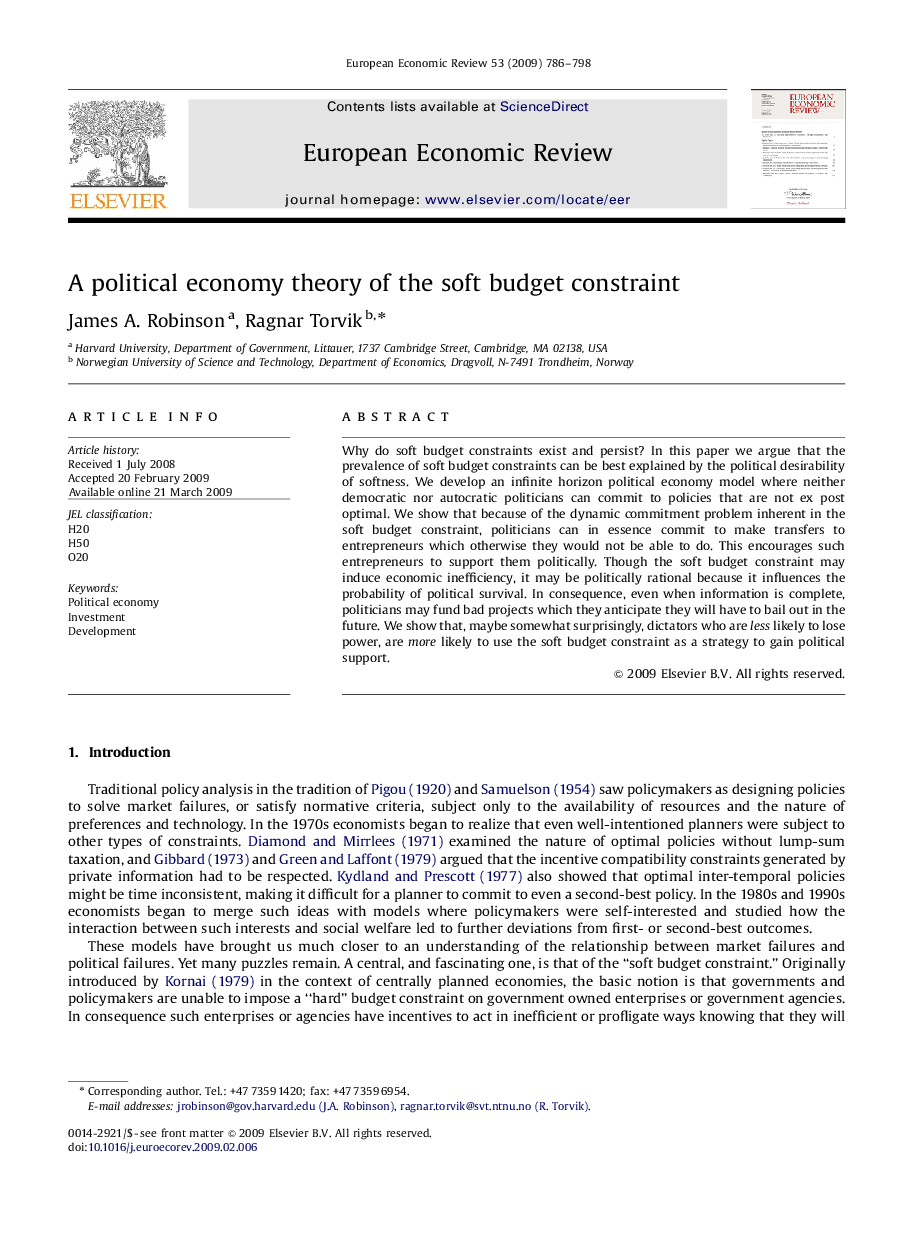| Article ID | Journal | Published Year | Pages | File Type |
|---|---|---|---|---|
| 5067293 | European Economic Review | 2009 | 13 Pages |
Abstract
Why do soft budget constraints exist and persist? In this paper we argue that the prevalence of soft budget constraints can be best explained by the political desirability of softness. We develop an infinite horizon political economy model where neither democratic nor autocratic politicians can commit to policies that are not ex post optimal. We show that because of the dynamic commitment problem inherent in the soft budget constraint, politicians can in essence commit to make transfers to entrepreneurs which otherwise they would not be able to do. This encourages such entrepreneurs to support them politically. Though the soft budget constraint may induce economic inefficiency, it may be politically rational because it influences the probability of political survival. In consequence, even when information is complete, politicians may fund bad projects which they anticipate they will have to bail out in the future. We show that, maybe somewhat surprisingly, dictators who are less likely to lose power, are more likely to use the soft budget constraint as a strategy to gain political support.
Related Topics
Social Sciences and Humanities
Economics, Econometrics and Finance
Economics and Econometrics
Authors
James A. Robinson, Ragnar Torvik,
